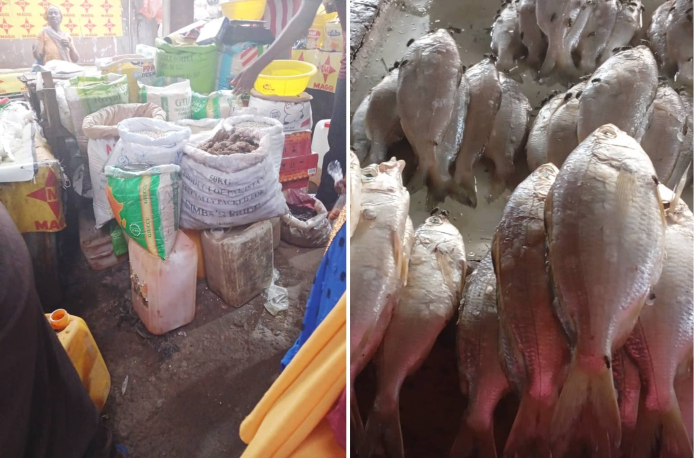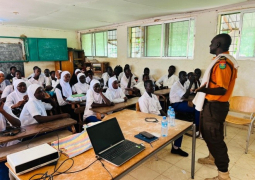
Fatoumatta Bojang, a regular market-goer, shared her anguish, saying: “I was astonished and completely broken the last time I went to the market with D400. To my surprise, I was left with nothing. I feel like crying each time I come back. I feel robbed.”
She added that even basic items like fish have become unaffordable. “I nearly fainted when a fish seller told me four-fish cost D200. Fish is no longer reachable to the poor. Every food item is expensive in The Gambia,” she told our reporter.
Another mother and businesswoman echoed similar concerns. Supporting her husband in managing household expenses, she explained how feeding her family now requires meticulous budgeting.
“My husband gives me D200, but it’s not enough. Fish alone costs D100, depending on the type. I roamed the entire market before deciding what to buy. Everything is expensive in this country.”
In many Gambian households, husbands are responsible for providing daily fish money. But even D300 is no longer sufficient for a family of seven.
Fakebba Danjo, a family head in Brikama, described this year as the most difficult year: “I spend D1000 daily just to keep my family going. Women need to be productive and aware of the situation. We can’t afford flamboyant spending anymore.”
Another father shared his awakening after visiting the market himself: “I thought my wife was exaggerating. But with D200, I couldn’t even buy enough fish. Now I give her D400 daily. Men should visit the market to understand the reality,” he emphasised.
A visit to Brikama Central Market revealed staggering prices for staple items: American Rice D2400, Cooking Oil (20L) D2100, Bag of Onions, D950, and Potato D900.
These essentials form the backbone of Gambian cuisine, and their inflated costs are pushing families to the brink.
Market vendors are also feeling the squeeze. Lalia Manajang, who sells food items daily, expressed her frustration, adding: “I don’t make profit anymore. Most days, I return home with nothing. Inflation has become a nightmare.”
She warned that if the situation remains unaddressed, many will go to bed hungry.
Jainaba Sanyang, a vegetable seller, added: “Since morning, I haven’t sat down. I’m constantly moving just to sell my goods. This country is becoming more difficult day by day.”
As food prices continue to soar, Gambians are left grappling with a crisis that touches every household. From market stalls to family kitchens, the struggle is real, and the need for urgent intervention is undeniable.





